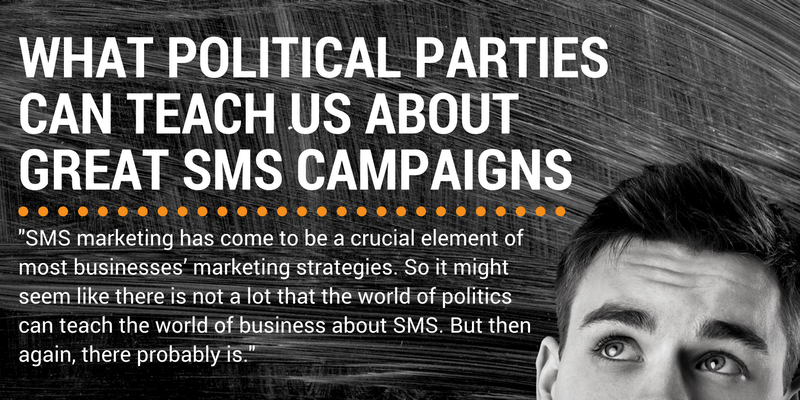Are Recruiters “really, really bad” at Texting?

We work with many recruiters who use our text messaging service to communicate with their candidates. In today’s world, SMS messaging is one of the best ways to ensure you can reach people with information, especially when it’s time critical. Also important for recruiters it is personal and discreet. Let’s face it a phone call can be overheard by a colleague. Worse still an email could be read by your boss!
Just recently though, a study came across our desk that had some interesting information in it. According to recruiting solution comparison site Software Advice, the authors of the study, job candidates really don’t want to be contacted by recruiters using text messages. The survey report theorises that’s because recruiters are “really, really bad at texting”.
The quote in the survey comes from Jim Durbin who works as a headhunter for a company in the United States. Another comment in the report is that recruiters tend to get too excited and want to contact their candidates about everything – basically they are a little too enthusiastic.
I’m not sure what to make of the study overall. It was a small sample size, primarily from the US. The data may or may not represent broader views on recruiters and SMS messaging. But it did get me thinking it is a good reason to point out the necessity of following best practices.
Here are a few guidelines recruiters need to keep in mind when using text messages with their candidates.
- Make sure your candidates want to get texts. The majority of people these days are used to text messaging and probably won’t mind since it is something as important as their career. But everyone is different. Older people may not be comfortable with it, or someone may have an existing job where they can’t get texts without getting noticed or in trouble. Other people just prefer a good old fashioned phone call. But for those who want it, you’ll save a lot of time on both ends of the conversations.
- Only text during appropriate hours. This is a common courtesy that shouldn’t be violated – unless your candidate says they work the midnight shift and only want texts after 10 pm. But they are the exception. What defines appropriate hours will likely vary by individual too, but what you can do is let everyone know what your hours are so they know when you might text them. Publish it and make sure they understand when they sign up. And don’t vary from those hours even if you have good news to share.
- Don’t send too many messages. While text messages arrive almost instantaneously, that doesn’t mean the person can respond right away. Don’t send multiple messages if it isn’t necessary. Give the candidate time to respond, which may be awhile if they are at their current job when they get your message.
- Use them right. Text messages are short. They aren’t for sending full job descriptions. Use links to content on the web if you have something you want them to look at. Or send them a request to call you to discuss something – especially if you have bad news for them.
So what do you think? Are recruiters bad at text messaging?
If you’re interested in more information on using SMS for recruiting, download “A Recruiter’s Guide to SMS Messaging” In it you’ll find more detailed information and best practices for recruiters.
Related Articles
5 Ways SMEs and Enterprises Can Use SMS Messaging
Technology has changed how companies operate in recent decades. It’s changed how employees work too. Successful companies are taking advantage of these changes, specifically mobile phones and SMS messaging. Read our blog to see five ways you can use SMS messaging in your business.
How to Have Your SMS Messaging Pay for Itself
SMS messaging supports all sorts of use cases. Most of the time, businesses consider it an expense. But for some businesses, there's a method that could turn that expense into income. See some examples of how it works, and if it might be for you in this blog.
What Political Parties Can Teach Us About Great SMS Campaigns
SMS marketing has come to be a crucial element of most businesses’ marketing strategies, and there is plenty of received wisdom within the marketing world as to how to get the most out of your SMS messages. So it might seem like there is not a lot that the world of politics can teach the world of business about SMS. But then again, there probably is.
21 Ready-to-Send Business Text Messaging Alerts
SMS marketing is a great addition to your business and overall marketing efforts. It can be daunting to get going, however, and the 160 character limit (or 456 characters if using fastsms) leaves a lot of people wondering exactly what they should say. To help you out, we've compiled 21 ready-to-send business text messaging alerts.
Why SMS Text Messaging is a Must For Your Recruitment Business
Can You Use SMS for “Cold Calling”?
Does the thought of cold calling fill you with dread? You might think it would be easier to use SMS messaging instead. And though it’s legal to do so in some circumstances, you might want to rethink using it that way. Read the full blog to find out why.
Are Recruiters “really, really bad” at Texting?
We work with many recruiters who use our SMS messaging to communicate with their candidates. In today’s world, text messaging is one of the best ways to ensure you can reach people with information, especially when it’s time critical. But are recruiters using SMS in the correct way?
SMS Messaging, Recruitment, and Millennials
Everyone wants a steady job with great pay and benefits right? Not so much for millennials. At least according to some research done in the last few years. It’s not that they want bad pay and poor benefits, just that those things aren’t necessarily the most important. But knowing what is important to them, just might make your SMS recruitment messages more successful.
SMS messaging helps both job seekers and recruiters
How does SMS messaging helps recruitment agencies? Just as importantly how does it help job seekers? This post explains several benefits for both recruiters and candidates. Perhaps the key issues are the speed of communication with SMS and also the innate privacy of SMS messaging.











